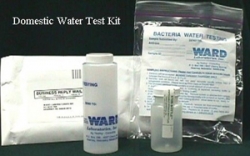Domestic Water Testing
Nebraska community water systems regularly test drinking water to ensure that it is safe. Rural residents in Gosper, Phelps, and Kearney Counties also need to know whether they have safe drinking water. The district offers a program that allows rural residents to have their household drinking water tested for nitrates and bacteria free of charge once a year.
Test results go to the Tri-Basin NRD office, where they are recorded in a water quality database. Results are forwarded to rural residents, along with information on protecting water quality. If you would like more information about this program, email Tri-Basin NRD at tribasin@tribasinnrd.org or call (877) 995-6688.
Nebraska Waves has some short informational videos: Nitrate in Nebraska Basics, Nebraska's Nitrate Challenge, and Nitrate and Human Health.
The University of Nebraska-Lincoln's Institute of Agriculture and Natural Resources has published a series of NebGuides called "Protecting Private Drinking Water Supplies," designed to help rural families protect their drinking water. Click on one of these links to read the NebGuides:
- An Introduction
- Water Well Location, Construction, Condition, and Management
- Household Wastewater (Sewage) Treatment System Management
- Runoff Management
- Hazardous Materials and Waste Management
- Pesticide and Fertilizer Storage and Handling
Drinking Water Treatment

